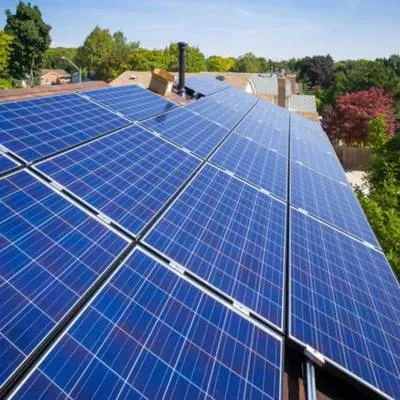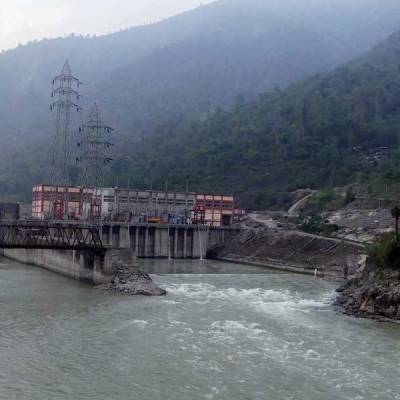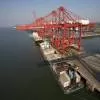- Home
- Infrastructure Energy
- POWER & RENEWABLE ENERGY
- Drawing Indian investments to Spain is one of the key objectives of the Spanish Government
Drawing Indian investments to Spain is one of the key objectives of the Spanish Government
'Relations between Spain and India are relatively recent but intense,' especially in the building construction and infrastructure space, points out Carlos JimTnez Aguirre, Chief Economic & Commercial Counsellor, Embassy of Spain. With a total of around 200 Spanish companies having subsidiaries, JVs, projects or liaison offices and purchase offices in India, he says, 'Broadly speaking, most of the companies located in India are from the infrastructure sector.' Aguirre, who has held this position since 2012, adds that Spanish companies are interested in working with local Indian companies on the ambitious infrastructure projects coming up in the near future.
He shares more SHRIYAL SETHUMADHAVAN.
How do you view the relationship between India and Spain? How has this strengthened over the years?
Relations between Spain and India are relatively recent but intense. In the 1980s and 90s, the industrial fabric was related to the automotive industry, machine tools and capital goods invested in the country. The greatest momentum in our relationship took place between 2000 and 2012, when many of our infrastructure, energy and water companies were interested in the Indian market and saw enormous possibilities in public tenders. In recent years, for a number of relevant reasons attributable to both the international economic crisis and its impact on India and Spain, there has been a certain slowdown in this trend. We hope this is temporary and a new investment impetus is given to the possibilities of collaboration and multiple synergies between the two countries.
Spain is the 12th largest investor in India with $1.8 billion in FDI, mostly in infrastructure, renewable energy, and water desalination, among others. What is the expertise Spain brings to India?
The changes that Spain has experienced since the 1980s until the beginning of the 21st century have been unparalleled. The country has the best infrastructures among the OECD countries; we are the leaders in the fields of renewable energy, water projects and urban waste. Seven out of 10 infrastructure franchises in the world are Spanish companies. Flagship projects, such as the new Panama Canal, the high-speed trains of Mecca-Medina, Ankara-Istanbul and the future Alexandria Cairo, and the metros of Houston, Panama, Riyadh, Quito, and the metro line 5 of Ho Chi Minh, all bear a Spanish stamp. Our engineers and technology are world-renowned, with special recognition throughout Europe, America and North Africa.
There are over 30 Indian companies in Spain in the areas of IT, energy and automobiles.
How do you see Indian participation increasing in Spain?
Drawing Indian investments to Spain is one of the key objectives of the Spanish Government, especially as a result of Brexit and the tightening of the US visa policy. At present, Spain has multiple opportunities for investment and collaboration in almost all industrial and service sectors. Perhaps, given the enormous development experienced in the past decades in terms of infrastructure and construction, it is not this sector that could offer more opportunities in the near future. As we have pointed out, our infrastructure and engineering companies are the most competitive and technically strong in the world, it is true that the most investment and capital risk funds in the world are entering into their shareholdings.
How are the consulate and the government of both countries strengthening relations between India and Spain?
Although all the institutional support that can be provided by both parties is positive and recommendable, we need not forget that it's the private sector that creates wealth and employment and ultimately takes the initiative through its strategies for internationalisation, expansion and diversification. Both administrations maintain effective communication with different exchange forums; we try to reduce the normal barriers or conflicts that exist in the economic and commercial relationship between the two partner countries.
Tell us about the role of the India-Spain Joint Economic Commission in the growth of trade between both countries.
The objective of the Joint Commission is to maintain an open, periodic dialogue, where we can analyse our bilateral relations and further intensify them, look for new sectors of collaboration, identify possible sectoral agreements, resolve barriers or contentious issues, and develop a future agenda for our relationship.
With government initiatives in India such as smart cities, Housing for All and Make in India, and opportunities across sectors like roads, ports and railways, how do you view the increasing opportunities for Spanish companies in India?
There are enormous opportunities in the Indian subcontinent. The new initiatives of the Modi Government are fundamental for India to maintain its dynamism and, of course, offer multiple possibilities to our companies, as they are precisely in the areas of our strengths. Spain has multiple collaborations in these sectors with Indian enterprises, which can be beneficial for both countries. We have the necessary technology, but lack knowledge about the Indian market. And, often, finding the right partner to understand how things work in such a diverse and extensive country, with multiple levels of administration and a concept of time quite different from ours, is important. There is much more that unites us than disunites us, but we have to find ourselves in the right place.
Do you envision any challenges in the bilateral relationship? And how can we overcome the same?
Challenges are normal in any relationship of a few years. Both parties must be open, knowing that there is a lot they can do together. One has to look for arranged marriages that work and have common goals. We tell our companies that they need to come to India and enter the market with the idea of staying for a longer time or not coming at all. It is a rich and complex market that offers a lot and asks for a lot. We need to have an open mind to know each other in order to strengthen our relationship and not be afraid.
To share your views on this interview, write in at feedback@ConstructionWorld.in
- Carlos JimTnez Aguirre, Chief Economic & Commercial Counsellor, Embassy of Spain 'Relations between Spain and India are relatively recent but intense,' especially in the building construction and infrastructure space, points out Carlos JimTnez Aguirre, Chief Economic & Commercial Counsellor, Embassy of Spain. With a total of around 200 Spanish companies having subsidiaries, JVs, projects or liaison offices and purchase offices in India, he says, 'Broadly speaking, most of the companies located in India are from the infrastructure sector.' Aguirre, who has held this position since 2012, adds that Spanish companies are interested in working with local Indian companies on the ambitious infrastructure projects coming up in the near future. He shares more SHRIYAL SETHUMADHAVAN. How do you view the relationship between India and Spain? How has this strengthened over the years? Relations between Spain and India are relatively recent but intense. In the 1980s and 90s, the industrial fabric was related to the automotive industry, machine tools and capital goods invested in the country. The greatest momentum in our relationship took place between 2000 and 2012, when many of our infrastructure, energy and water companies were interested in the Indian market and saw enormous possibilities in public tenders. In recent years, for a number of relevant reasons attributable to both the international economic crisis and its impact on India and Spain, there has been a certain slowdown in this trend. We hope this is temporary and a new investment impetus is given to the possibilities of collaboration and multiple synergies between the two countries. Spain is the 12th largest investor in India with $1.8 billion in FDI, mostly in infrastructure, renewable energy, and water desalination, among others. What is the expertise Spain brings to India? The changes that Spain has experienced since the 1980s until the beginning of the 21st century have been unparalleled. The country has the best infrastructures among the OECD countries; we are the leaders in the fields of renewable energy, water projects and urban waste. Seven out of 10 infrastructure franchises in the world are Spanish companies. Flagship projects, such as the new Panama Canal, the high-speed trains of Mecca-Medina, Ankara-Istanbul and the future Alexandria Cairo, and the metros of Houston, Panama, Riyadh, Quito, and the metro line 5 of Ho Chi Minh, all bear a Spanish stamp. Our engineers and technology are world-renowned, with special recognition throughout Europe, America and North Africa. There are over 30 Indian companies in Spain in the areas of IT, energy and automobiles. How do you see Indian participation increasing in Spain? Drawing Indian investments to Spain is one of the key objectives of the Spanish Government, especially as a result of Brexit and the tightening of the US visa policy. At present, Spain has multiple opportunities for investment and collaboration in almost all industrial and service sectors. Perhaps, given the enormous development experienced in the past decades in terms of infrastructure and construction, it is not this sector that could offer more opportunities in the near future. As we have pointed out, our infrastructure and engineering companies are the most competitive and technically strong in the world, it is true that the most investment and capital risk funds in the world are entering into their shareholdings. How are the consulate and the government of both countries strengthening relations between India and Spain? Although all the institutional support that can be provided by both parties is positive and recommendable, we need not forget that it's the private sector that creates wealth and employment and ultimately takes the initiative through its strategies for internationalisation, expansion and diversification. Both administrations maintain effective communication with different exchange forums; we try to reduce the normal barriers or conflicts that exist in the economic and commercial relationship between the two partner countries. Tell us about the role of the India-Spain Joint Economic Commission in the growth of trade between both countries. The objective of the Joint Commission is to maintain an open, periodic dialogue, where we can analyse our bilateral relations and further intensify them, look for new sectors of collaboration, identify possible sectoral agreements, resolve barriers or contentious issues, and develop a future agenda for our relationship. With government initiatives in India such as smart cities, Housing for All and Make in India, and opportunities across sectors like roads, ports and railways, how do you view the increasing opportunities for Spanish companies in India? There are enormous opportunities in the Indian subcontinent. The new initiatives of the Modi Government are fundamental for India to maintain its dynamism and, of course, offer multiple possibilities to our companies, as they are precisely in the areas of our strengths. Spain has multiple collaborations in these sectors with Indian enterprises, which can be beneficial for both countries. We have the necessary technology, but lack knowledge about the Indian market. And, often, finding the right partner to understand how things work in such a diverse and extensive country, with multiple levels of administration and a concept of time quite different from ours, is important. There is much more that unites us than disunites us, but we have to find ourselves in the right place. Do you envision any challenges in the bilateral relationship? And how can we overcome the same? Challenges are normal in any relationship of a few years. Both parties must be open, knowing that there is a lot they can do together. One has to look for arranged marriages that work and have common goals. We tell our companies that they need to come to India and enter the market with the idea of staying for a longer time or not coming at all. It is a rich and complex market that offers a lot and asks for a lot. We need to have an open mind to know each other in order to strengthen our relationship and not be afraid. To share your views on this interview, write in at feedback@ConstructionWorld.in




















